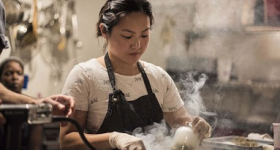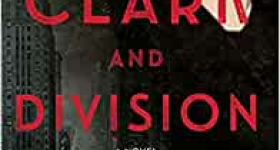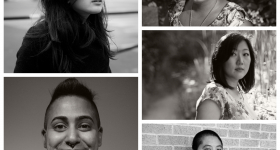The Project on Fair Representation, a legal defense fund backed by self-professed "charity" organization Project Liberty, Inc. is running smear web campaigns against the University of Wisconsin-Madison, University of North Carolina-Chapel Hill, and Harvard University over charges of "racial discrimination." On the campaigns’ web pages, Asian faces are prominently displayed next to the tagline: “Were you denied admission? It may be because you’re the wrong race.” These campaigns claim that Asian Americans are subjected to racial quotas in college admissions and are unfairly rejected from some of the nation’s top universities. They play off the popular and yet unfounded idea that affirmative action hurts not only white students, but also Asian Americans.
The campaigns are funded primarily by one man: Edward Blum, founder and one-man staff of Project Liberty, Inc. who is determined to end so-called racial discrimination in university admissions. The Project on Fair Representation is not Blum’s first foray into the politics of affirmative action. Blum was also a driving force behind the most well-known challenge thus far to affirmative action in this generation: the notorious Fisher vs. University of Texas case, starring Abigail Fisher, a white woman, as the plaintiff. Though Blum claims that he is not using Asian Americans as a racial wedge, this new campaign relies on the racially charged idea that Asian Americans in the U.S. have attained a "culture of success" that has led to racial discrimination against them in university admissions.
Creating a “Culture of Success”
The argument of discrimination against Asian Americans based upon their perceived "culture of success," whether that phrase is used or not, relies on a coded form of racism that pits supposed Asian American success against the false trope of a Black "culture of poverty."
Recently, there has been a surge of media coverage focused on the "success" of Asian Americans spurred by author Amy Chua. By sensationalizing "tiger moms" and a cultural "triple package" of traits, Chua has revived the model minority myth. As Chua would have it, Asian Americans’ “success” is based upon the strong work ethic of Asian migrants, in contrast to Black and Latino “laziness,” allowing Asians to quickly accumulate wealth in this country. Unfortunately, this false idea of an inherently superior Asian work ethic has informed our national conversations around Asian Americans and affirmative action.
The power of racism lies in its ability to shift form; similarly, the enduring power of the model minority myth depends upon its ability to perpetuate itself by ignoring the role of immigration policy in shaping Asian success stories. An Asian American “culture of success,” which fuels Blum’s anti-affirmative action arguments, ignores history and fails to account for the role that the U.S. immigration system has played in creating stratified classes of migrants. Most notably, following decades of Asian immigrant exclusion solidified by the Immigration Act of 1924, US Cold War fears spurred the passage of the 1965 Hart Celler Act. This Act instituted immigration preferences for "highly skilled" or technologically skilled migrants, along with options for family reunification. As a result, a great number of highly skilled, highly educated new Asian immigrants joined the US population, carefully screened for their skills and, often, for their economic status. This influx of Asian immigrants with political, social and educational capital fueled the model minority myth, and resulted in the higher economic status of certain Asian immigrant groups that persists through the present day.
The idea of “success” as a cultural trait erases both the role of immigration legislation and the historical and social struggles of those who did not have the advantage of having economically privileged forebears. In order to perpetuate the false myth of an inherent Asian culture of success, it thus behooves Blum, Chua and their supporters to undermine Asian American battles for affirmative action, along with any Asian American working class struggles.
Strange Bedfellows: Immigration and Affirmative Action
It is hypocritical for those of us who have economically and socially benefited from migration to deny access to others by undermining affirmative action. Even in the U.S. political left, affirmative action is framed as a system designed to increase access and circumvent discrimination, while immigration is understood to exclude and discriminate in the name of “protecting borders.” Upon closer examination, however, these systems are strikingly—and disturbingly—similar.
Both affirmative action and immigration are usually presented to communities of color as points of access: to institutions of higher education and to the “American Dream.” In reality, both these systems grant access only to a select few without challenging broader power systems or creating true structural change. Affirmative action is lauded as a system of access, but is only beneficial for those few allowed past the gates. Immigration provides access and the illusion of “success” for those handpicked by the U.S. government, while leaving the majority of those who wish to migrate, often due to U.S. influence in their countries of origin, without the means or permission. While affirmative action and immigration both allow conditional and limited access, neither of these systems provide any avenue for structural change -- in higher education institutions or immigration policy.
Affirmative action and immigration function as band-aid measures, providing temporary and incomplete "solutions" to the racism that pervades education and global inequity. True reform would necessitate a reworking of both higher education and immigration legislation from the ground up, opening classrooms and borders, and allowing for a free flow of knowledge, capital and people. Instead, institutions of higher education remain steeped in whiteness (despite a few brown faces) and immigration policy continues to ignore the power dynamics and policies that so often necessitate migration.
Despite a long history steeped in xenophobia and discrimination, immigration has acted as a form of affirmative action for many Asian Americans, providing an entry point into historically white male fields for a few, while excluding the majority. For certain Asian communities deemed worthy by U.S. immigration laws, the result of migration policy often has been access -- to education, to visas, to high-paying jobs in this country that have previously seemed unattainable. While any form of migration is inherently traumatic, this access has set up certain Asian American groups to become a so-called “model minority” credited with a supposed “culture of success.”
Refusing the False Promise of Whiteness
As Asian Americans, we need to reframe our histories and stand in solidarity with all marginalized peoples looking to increase their access -- whether through immigration or through affirmative action. It’s time for us to decide where we stand in this latest attack in the war against affirmative action. Asian America: can we please not be the face of the Project on Fair Representation’s new campaign?
We need to raise awareness about how Asian Americans have struggled to institute affirmative action, not to abolish it. We need to acknowledge that we have been part of an immigration strategy designed to create a “culture of success,” providing conditional access on the back of mass exclusion. We need to stand in solidarity with all people looking to increase their access through the flawed systems available, whether affirmative action or immigration. And of course, we need to refuse to be a prop in white America’s plan, used and then discarded when we’ve outlived our racial value.
...
Sasha W is a queer, Sri Lankan, South Asian educator and organizer who wandered from the suburbs of LA, through Philadelphia, to Madison, WI. Sasha has been facilitating workshops and trainings for about 7 years, and has been involved in various community organizations, including: DeQH: Desi LGBTQ Helpline, the only helpline by and for queer South Asians in the U.S.; the National Queer Asian Pacific Islander Alliance (NQAPIA), a federation of LGBTQ API organizations; East Coast Solidarity Summer, a political education weekend for South Asian youth; national queer South Asian organizing efforts; and currently works as a Social Justice Educator and Trainer with students of color in Madison, WI. Read more about Sasha’s training and consulting work.









Comments